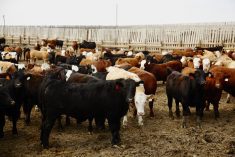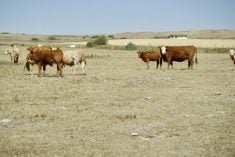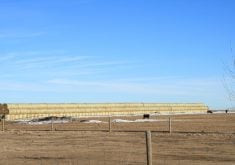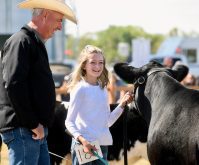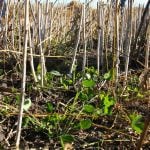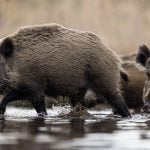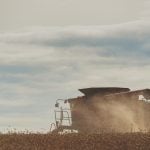
Heath Ferguson grew up in a small town just outside Edmonton, Alta. Growing up, his family had a small herd of Simmental/Saler-cross cows and he raised a few bottle calves every year with his brothers. In high school, he was in 4-H, Green Certificate and worked at the local packing plant, as well as helping the owner at his cow-calf operation, where he began to form his perspective on the cattle industry. After high school, he got his AI certificate and began working as an AI technician. Ferguson would go on to work at auction marts, feedlots, cow-calf operations and a bull stud. His work introduced him to his passion for cattle genetics, especially in creating efficient commercial cow herds. Ferguson is currently working on his business diploma while working for a startup company that aims to provide EPDs and genomic testing to crossbred cattle producers. Ferguson’s mentor is Bruce Niznik, who farms and ranches near Brooks, Alta., with his wife Jodi and family. Niznik and his family raise Black Angus cattle and crops on irrigated ground, and partner with Brandt Lake Wagyu, crossing their Angus genetics with the Wagyu. Niznik has also been involved with the Alberta Beef Producers and is a long-time board member of his local grazing association.

Morgan Kitchen is a first-generation rancher who resides in Vanderhoof, B.C., with her husband Craig, and two young children. Kitchen and her family run a commercial cow-calf operation, implementing regenerative agriculture practices with a focus on soil health and rotational grazing. Passionate about agriculture, she is “a lover of land and livestock” — she can always be found with her hands in the soil and out working with livestock, with her kiddos in tow. Having grown up with horses in the lower mainland, her journey into agriculture started while attending the University of the Fraser Valley and deepened through her agriculture consulting work. Kitchen works for the B.C. Land Matching Program, helping to match farmers with landholders who have land to lease for farming activities. Kitchen’s mentors are John and Deanne Chuiko, who run a cow-calf and long yearling operation near St. Walburg, Sask. They manage their business using the holistic management framework to make financially, environmentally and socially sound decisions.
Read Also
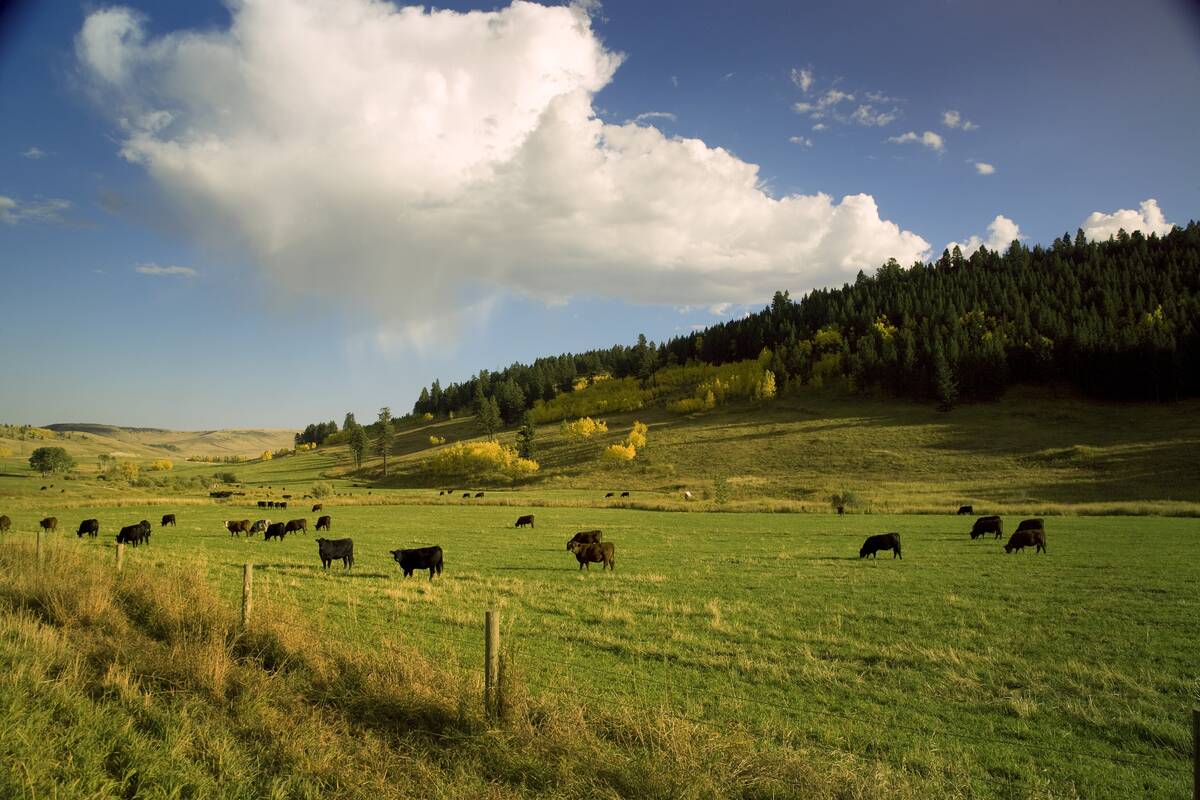
The Canadian Cattle Association’s international advocacy efforts
Global ag policies affect Canadian food policy, so the Canadian Cattle Association participates in international and domestic forums
Canadian Western Agribition elected its leadership team during its AGM earlier this spring. Kim Hextall of Grenfell, Sask., remains president. Michael Latimer of Olds, Alta., was elected vice-president. Kelsey Ashworth of Oungre, Sask., Levi Jackson of Sedley, Sask., and Blake MacMillan of Nokomis, Sask., are executive members-at-large. Chris Lees of Arcola, Sask., remains past president. The following directors were elected to serve two-year terms: Kelly Howe (Moose Jaw, Sask.), Courtney MacDougall (Regina, Sask.), Blake MacMillan, Grant McLellan (Regina, Sask.), and Karl Sauter (Wawota, Sask.).

Crispin Colvin has been elected chair of Farm and Food Care Ontario. Colvin, a beef and cash crop farmer from Middlesex County, Ont., represents the Ontario Federation of Agriculture. Also on the executive are Janelle Cardiff (Egg Farmers of Ontario) as first vice-chair, Jennifer Mitchell (Ontario Canola Growers) as second vice-chair and John Taylor (Ontario Mutual Insurance Association) as treasurer. Dairy farmer Bonnie den Haan moves to the past chair position.
Regional TESA winners
Congratulations to Lynn Leavitt of Leavitt’s Black Angus Beef, Ontario recipient of The Environmental Stewardship Award (TESA). Leavitt’s operation, located in Prince Edward County, comprises 200 acres owned and 300 acres rented, while also purchasing 100 acres of standing hay each year. Of the total operated acres, 175 acres of these are used for grazing the farm’s Angus brood cows and calves that are fed and finished on farm. Like many farmers, Leavitt was looking for an environmentally friendly solution for used bale wrap, silage bags and twine. He created the Pac-It compactor and U-Pac AgriServices to help farmers recycle farm plastics. The service has expanded across the province and has been able to gather about 225,000 pounds of scrap bale wrap and transport it to a licensed recycling plant in Ontario. Of that amount, approximately 30,000 pounds have been compacted at his own farm. The compactors, as well as blueprints for the compactors, are available to farmers across the province. Leavitt’s Black Angus Beef was also awarded the Premier’s Award for Agri-Food Innovation for its work on farm plastic recycling and re-purposing, as well as the 2022 Don Hill Legacy Award, recognizing creative and innovative solutions to environmental challenges faced on farm.
Congratulations as well to Glen and Pam Lowry of Darlingford, Man., recipients of that province’s TESA. Lowry Farms includes 220 acres of pasture and around 100 acres of wetlands. Their pasture is about 30 per cent native forages and 70 per cent tame species, including brome, orchard grass and legumes. The Lowrys also have an additional 200 acres that produces winter feed. The herd includes 80 commercial cow-calf pairs. The farm, located on top of an escarpment and surrounded by cropland, provides habitat for wildlife, including some endangered species. Cows begin calving on pasture in early May, and move through a rotational grazing system that includes 22 paddocks on the home half-section. They use portable electric fencing to move cattle daily. Pipelines carry water to troughs in many of the paddocks. They also draw water from sloughs and ponds to off-site watering troughs. Most years the herd remains on grass until November. After that, the Lowrys feed hay and round bale silage in the paddocks. Glen will place portable windbreaks strategically in the pasture to concentrate cattle — and nutrients — in areas that need more nutrients. In other areas, he’ll limit-feed hay or silage bales to concentrate nutrients. The Lowrys have also used annual cover crops to rejuvenate an established perennial hay field, and have completed an environmental farm plan and a holistic farm management course. They’ve also made their farm available to researchers with the University of Manitoba and Agriculture and Agri-Food Canada.




